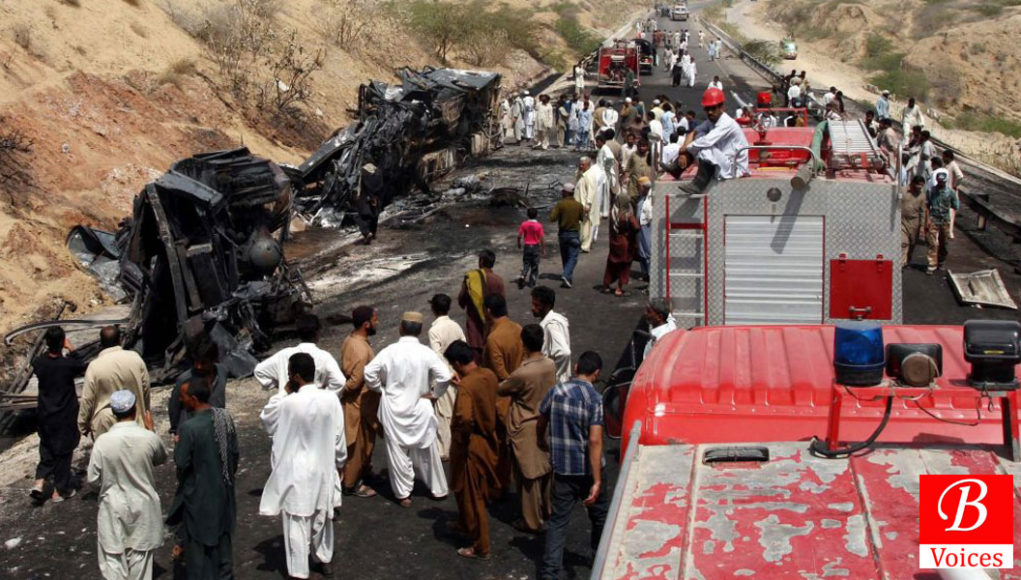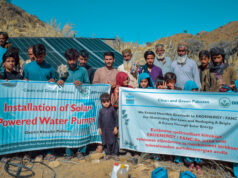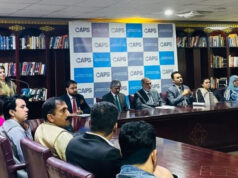Adnan Aamir
On January 21, a passenger bus left Karachi for Panjgur. The 29 passengers in this bus, including women and children, were on a 10-hour journey towards their homes in Panjgur, a town of Balochistan near the Iranian border.
When the bus approached the Lasbela cross, a 10-wheeler truck entered the highway. It was sudden and unexpected and as a result, there was a huge collision between the bus and the truck. Both vehicles caught fire instantly and what followed was a horrific and inexplicable human tragedy.
People passing by saw huge flames at the site. They tried to help people trapped in both vehicles. There was just one door in the bus which made it difficult for passengers to leave the bus before it was fully engulfed by a deadly fire. Consequently, all 27 passengers of the bus died in the accident. Their bodies were beyond recognition by the time the fire was extinguished. According to witnesses, when people tried to pull out the bodies from the bus, first they pulled out huge bags of fish which were being transported in the bus to Panjgur.
In the aftermath of this tragedy, the government of Balochistan constituted an inquiry committee. It also registered an FIR against the owner of the passenger bus and the driver of the bus, who died in the accident. The government also announced Rs10 million each for the family of the deceased and Rs5 million for the injured. However, no action was taken to even pinpoint the primary cause of this incident – unsafe smuggling of Iranian oil in Balochistan.
The Panjgur-bound passenger bus was not carrying oil because oil is smuggled from Panjgur to Karachi, not the other way round. However, the 10-wheeler truck was carrying smuggled oil, as per the witnesses. Khalil Roonjah, a local civil society activist, said that the truck entered the highway after dumping smuggled oil at a petrol pump. He believes that the huge fire, which erupted after the collision was not possible if the truck had not been carrying smuggled oil. Roonjah further added that the fuel storage tank was hidden below the main structure of the truck.
The government has downplayed this ‘smuggled oil’ factor in this tragic incident. There was no mention of oil smuggling in the FIR lodged by the government. In fact, the owner of the truck was not nominated in the FIR, whereas the owner and driver of the bus were nominated. The apparent reason behind this cover-up is that the government wants to protect the illicit oil trade, which is lucrative on many counts for those in power.
Oil is smuggled from Iran to Pakistan near Panjgur border. From Panjgur, the smuggled oil is transported in trucks and Toyota Probox vehicles to Quetta and Karachi. Thousands of people are attached to this trade and their livelihood is dependent on this smuggling. At the same time, the vehicles carrying smuggled oil have to pay extortion money at many check posts on the way from Panjgur to Quetta and Karachi. The money earned from this smuggling is one of the reasons that this oil smuggling is patronized by government officials.
A Balochistan government official, who served at a high-level administrative position, told this scribe on condition of anonymity that the last two governments in Balochistan had urged the administration not to disturb oil smuggling. He also revealed that transporters had made concealed compartments in passenger buses to smuggle oil to Karachi.
Although it is true that this trade has provided employment to thousands of people in Balochistan, the way oil is transported inside buses is unsafe and endangers the lives of common people. The Panjgur bus tragedy is only one example.
This incident is not a one-off event. Lasbela has witnessed similar tragedies. In 2014, a bus collided with an oil tanker near Gaddani in Lasbela district. As many as 35 people died in that incident and most of them were buried in an Edhi graveyard in Karachi because their bodies could not be identified. In November 2015, Dr Yaseen Baloch, the secretary-general of National Party, died in a road accident in Lasbela district.
Apart from unsafe smuggling of Iranian oil, there are other factors which lead to highway accidents in Lasbela in particular. First, there is no proper response mechanism in place to deal with such accidents. Ismail Sasoli, a local journalist, revealed that there was no fire brigade to put out fire. “Another fire department was activated came from Uthal town and by the time it arrived, it was too late,” he said.
Second, there is no emergency medical centre along the Karachi-Quetta highway to provide first aid to victims of highway accidents. All victims of such incidents have to be transported to Karachi, which takes hours.
Despite the growing number of highway accidents, especially in Lasbela district, the government has failed to establish trauma centers. Chief Minister Jam Kamal belongs to Lasbela. Before him, his grandfather and father also served as CMs of Balochistan. However, Lasbela could not get basic trauma centers.
Third factor behind deadly highway accidents in Balochistan is the single-lane narrow highways. Not a single highway in Balochistan is a dual-carriageway. This means that there is just one lane for traffic traveling in both directions. This results in a situation where drivers have to take risks while overtaking other vehicles. Every attempt is a gamble and sometimes drivers are not lucky.
Despite the severity of the problem, the federal government dropped the project of widening highways in Balochistan. Since highways are a federal subject, the Balochistan government is trying to add such projects back in the federal PSDP but they have not been successful so far. This approach of the federal government makes it responsible for the loss of life in highway accidents in Balochistan.
To prevent Panjgur bus tragedies from happening again, the government of Balochistan has to ensure that unsafe transportation of oil be curbed. This trade can be legalized, given its economic significance for the impoverished province of Balochistan. However, transportation of Iranian oil should only be allowed once all precautions have been taken to protect passengers traveling on the highways. Balochistan government should also present a strong case before the federal government to ensure funding for dualization of all major highways in Balochistan.
Originally published in The Friday Times
Share your comments!








